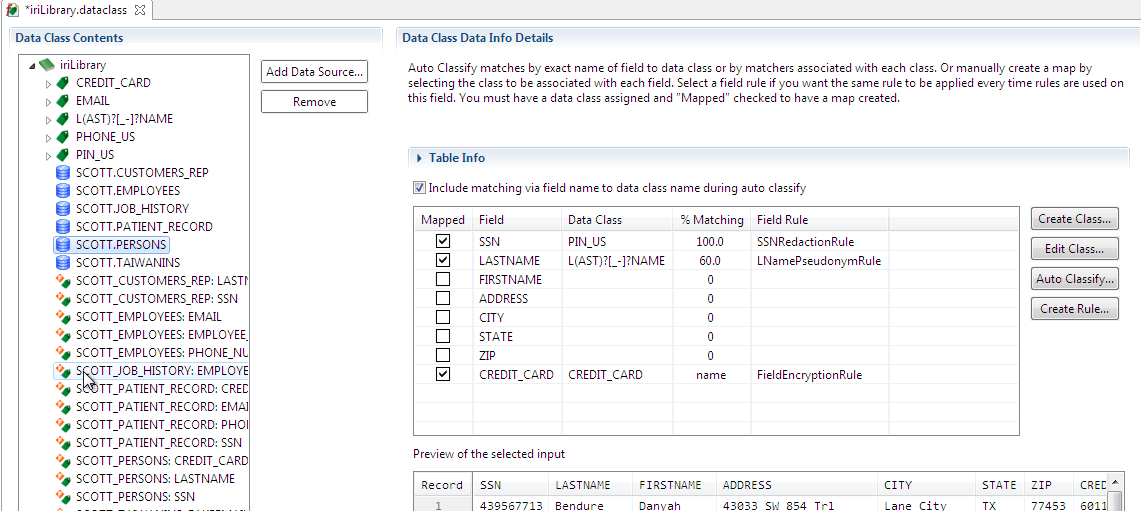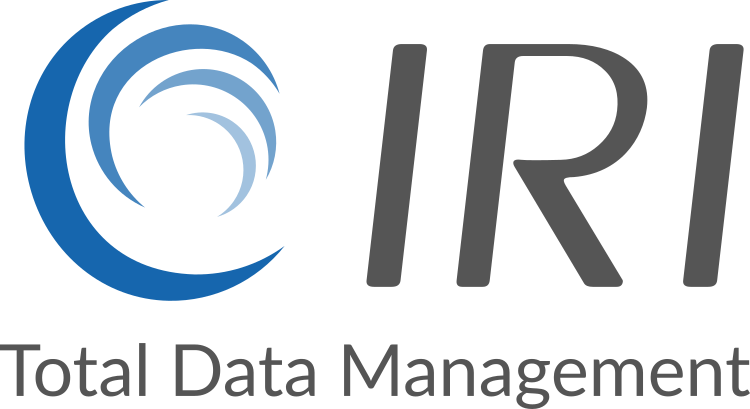Using the IRI Workbench GUI for FieldShield, you can also define and apply deterministic data masking rules across one or more data sources at a time. This protects columns in multiple tables (or files) with similar content in a consistent way and thus preserves referential integrity.
For example, you may want to apply format-preserving encryption to all the columns in a database with a social security number (which may be a key). If those column names can be pattern-matched by an expression, for example, the defined rule will apply.
/FieldShield%20GUI/fs_wizaredsel.png)
The protection rule can be defined, stored, and re-used in your data class or project rule library. Cross-table (or multi-file) rule application avoids the need to specify protections repeatedly, achieves consistency in appearance, and preserves the links between tables; i.e., your joins will still work after the masking is done. Restoration (e.g., decryption) can be performed globally if needed, too.
See this how-to blog article for automating this process for several linked tables at once using the FieldShield New Multi-Table Protect Job wizard in IRI Workbench.
.jpg)

Data masking rules can be also applied automatically to data classes for even more global protection. See this how-to-blog article on consolidating the data classification, discovery, and masking processes to find and fix data across one or more database schemas or SMB directories.



